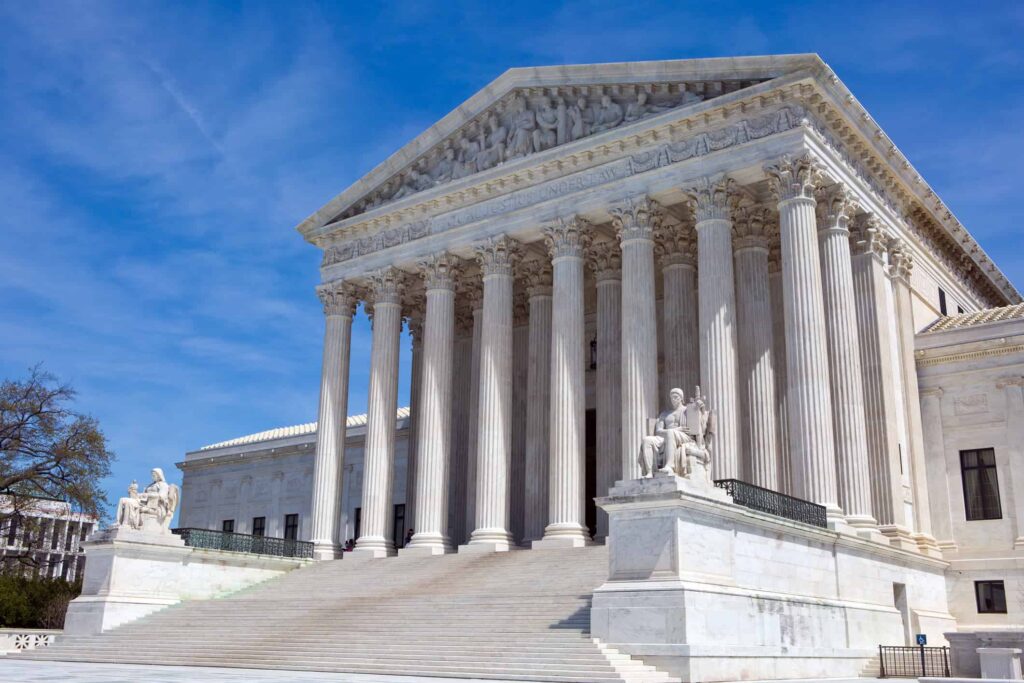It turns out that the blockbuster “red team” climate report out of the U.S. Department of Energy has succumbed. Not to informed criticism but to lawfare from alarmists who absolutely, positively do not want to be part of an open-minded discussion or even see one take place without them. Bloomberg Green may send shrill emails about “Trump’s war on climate science”. But there’s one side in the dogmatist/skeptic debate that wants to discuss science, and one that wants to silence dissent. And it’s not the one they think.
Heatmap is bitter in triumph:
“The Trump administration disbanded a group of five climate contrarians brought together to write the Department of Energy’s controversial report challenging the scientific consensus on the severity of climate change, CNN’s Ella Nilsen reported. In a lawsuit last month, the Environmental Defense Fund and the Union of Concerned Scientists alleged that the formation of the group of researchers — the University of Alabama’s John Christy and Roy Spencer, the Hoover Institution’s Steven Koonin, Georgia Tech professor emeritus Judith Curry, and Canadian economist Ross McKitrick – violated the Federal Advisory Committee Act’s public disclosure rules by failing to promptly disclose its formation and make its meeting and notes available to the public. The litigation also accused the Trump administration of breaking the law by assembling a government working group deliberately designed to represent a one-sided argument, which is prohibited under the same statute. Secretary of Energy Chris Wright confirmed in a September 3 letter that the group was dissolved. Still, the Energy Department has not retracted its assessment.”
There is something disingenuous, even disagreeable, about suggesting that there is anything unusual or despicable about “assembling a government working group deliberately designed to represent a one-sided argument”. Was the run-up to, oh, say, Obamacare, or the original Endangerment Finding for that matter, an exercise in forming working groups balanced across opposing viewpoints?
Roger Pielke Jr. does a much better job of explaining what happened including the embarrassing bit. He notes that the CWG was disbanded on September 3 and speculates that:
“Presumably its work product(s) and submitted public comments will all be withdrawn. This will be formally announced shortly.”
So maybe download a copy now.
He also thinks that “the disbanding is the direct result of a lawsuit filed by the Environmental Defense Fund and the Union of Concerned Scientists arguing that the empanelment of the CWG violated the Federal Advisory Committee Act (FACA).” And moreover it probably did. The DoE is arguing otherwise, and that it’s moot anyway because the group has been disbanded. But apparently, speaking of the authors all being genuine academics:
“When I first read the lawsuit, I expected that it would be dismissed – Surely, I thought, DOE had taken steps to ensure that the five members of the CWG were either employed by DOE or otherwise detailed to the agency, such that they would not fall under the provisions of FACA. Apparently, one of the members of the CWG did not file the paperwork necessary to be considered internal to DOE, thus legitimizing the UCS/EDF lawsuit. Given this, on the merits, UCS/EDF were correct and would likely have prevailed. With the stakes so high, DOE was sloppy in not ensuring that the CWG was procedurally air tight.”
One of our arguments against conspiracy theories of all sorts is precisely that humans generally, not just professors, are given to bungling even straightforward administrative tasks to such an extent that the notion of a prominent group carrying out a vast intricate sinister plot and hiding the evidence according to established protocols is absurd.
In this case we don’t know which if any of the five failed to file their paperwork in quadruplicate and send in the right documents to the right assistant administrator to the executive assistant to the under-secretary of procedural procedures or whether, in fact, it was the deputy chief assistant to the chief assistant deputy who muffed it. But for our part we’re giving the stink-eye to people who, instead of welcoming the chance to debate the fundamentals and, presumably, win gloriously, instead sought to silence the skeptics through this kind of nitpicking. Replete with malice, as RPJ noted:
“For their part, UCS/EDF have requested that the court rule that EPA not be allowed to rely on the report or the CWG members as individuals unless DOE goes through the FACA process.”
He also observed, and we suspect they realised it was too scorched-earth, at least from a public relations perspective:
“UCS/EDF cleaned up the suggestion in their original submission that CWG members should be prevented from providing further advice: ‘A use injunction against DOE would not prevent the individual members of the CWG from speaking in any way.’”
But the key point is that mere paperwork shouldn’t be used as an excuse to avoid vigorous debate. As RPJ also wrote:
“The disbanding of the CWG says nothing about the substance of the CWG report – which, as THB readers know, made several important critiques relying heavily on my work and that of colleagues – notably related to scenarios, extreme weather, ‘billion dollar disasters,’ and extreme event attribution.”
However the response did:
“The most important accomplishment of the short-lived working group was to reveal the censorious and politicized response of many in the media and climate science community to the very idea that other accomplished and credentialed experts might have views that deviate in small or large degree from an acceptable orthodoxy – all in the context of climate politics.”
It will prove, we suspect, a Pyrrhic victory. They can’t burn all copies of the report, nor prevent people from discussing what it said. Or their refusal to do so.



It would appear that the High Priesthood of the Holy Temple of Climate Change is running scared. When the priesthood relies on administrative nickpicking rather than honest debate it signals that they know their case is shaky. In any case I suspect that anyone interested, like me, has already downloaded the CWG report - and very interesting it was too!